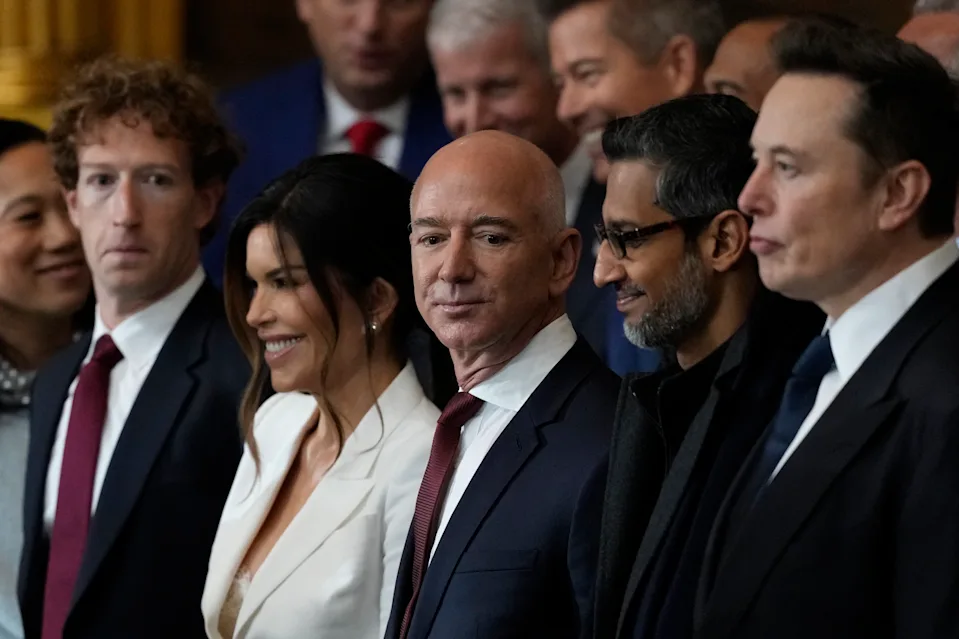In an unexpected flashpoint that exposed the enduring tension between Big Tech and Trump’s MAGA movement, Amazon found itself in political hot water this week. The uproar began after Punchbowl News reported that Amazon planned to display U.S. tariffs alongside product prices—a move seen by Trump’s allies as a political jab at the administration’s trade policies. Though Amazon later denied the report, the fallout was swift and intense.
The Amazon Denial: Too Late for MAGA Trust?
Amazon spokesperson Tim Doyle clarified that the idea to display import charges had only been discussed internally for the Amazon Haul store—a budget-focused spinoff that sells items under $20. He emphasized: “This was never approved and is not going to happen.”
Still, by the time the clarification came, the MAGA-aligned media sphere was already on the offensive. Former Trump adviser Steve Bannon accused Amazon of declaring “war with Trump” on his War Room podcast. Conservative activist Laura Loomer echoed the sentiment, claiming Big Tech “tells Trump what he wants to hear” but can’t be trusted.
Even the White House jumped into the fray. Press Secretary Karoline Leavitt labeled the move a “hostile and political act” before Amazon’s denial went public.
Trump Steps In: A Call to Bezos
To de-escalate tensions, President Trump personally called Amazon founder Jeff Bezos. According to both the White House and Amazon, the call was productive. Trump told reporters afterward, “Jeff Bezos was very nice. He solved the problem very quickly. Good guy.”
While the call seemed to resolve the immediate issue, the underlying mistrust remained palpable among Trump’s base. MAGA influencers like Jack Posobiec dismissed Amazon’s recent attempts to reestablish rapport with conservatives as “just a lot of talk.”
Big Tech’s Trump Strategy: Not Quite Working
In a clear pivot following Trump’s 2024 re-election, tech giants have gone out of their way to align with the administration. CEOs from Amazon, Google, Meta, Apple, and OpenAI all donated $1 million each to Trump’s inauguration fund. Many companies also relaxed their content moderation policies following conservative criticism during the 2020 election cycle.
Yet, these gestures have not erased MAGA’s memory of past clashes, censorship accusations, or concerns over globalist ties. Trump’s tariffs and trade restrictions are central to his economic policy—and any perceived critique, like Amazon’s reported tariff transparency plan, is seen as betrayal.
Understanding the Tariff Angle
Trump’s current trade policies include a 145% tariff on imports from China and a 10% minimum tariff on all other imports. These policies are meant to protect American manufacturing and encourage onshoring.
Amazon, with its vast global supply chain, is especially impacted by these measures. CEO Andy Jassy recently told CNBC, “We’re going to try and do everything we can to keep prices as low as possible for customers,” acknowledging the tariff pressure but avoiding confrontation.
Additionally, Amazon—like many retailers—has leveraged the de minimis exemption, a U.S. trade loophole that allows products under $800 to be imported tariff-free. This exemption has come under scrutiny, with Trump reportedly planning changes to limit its abuse, particularly by Chinese platforms like Temu and Shein, which have started showing tariff charges at checkout.
Learn more about the de minimis loophole here:
🔗 U.S. Customs and Border Protection: De Minimis Exemption
Final Thoughts: Will MAGA Ever Trust Big Tech?
The incident underscores the lasting distrust MAGA supporters hold toward Silicon Valley, even as CEOs bend over backward to stay in Trump’s good graces. It also highlights how volatile the political environment is for global companies navigating between regulation, tariffs, and brand perception.
While Trump may have smoothed things over with Bezos personally, public perception is harder to control. As MAGA influencers continue to demand accountability, Big Tech’s political strategy remains under pressure.
What’s Next for Amazon?
Amazon is scheduled to report its quarterly earnings soon, where CEO Andy Jassy is expected to address how the company is navigating tariffs and potential de minimis reforms. Investors, customers, and regulators alike will be watching.
Want to stay informed on U.S. tech policy and trade issues? Subscribe to updates and follow trusted sources like CNN Business, Reuters, and CBP.gov.

